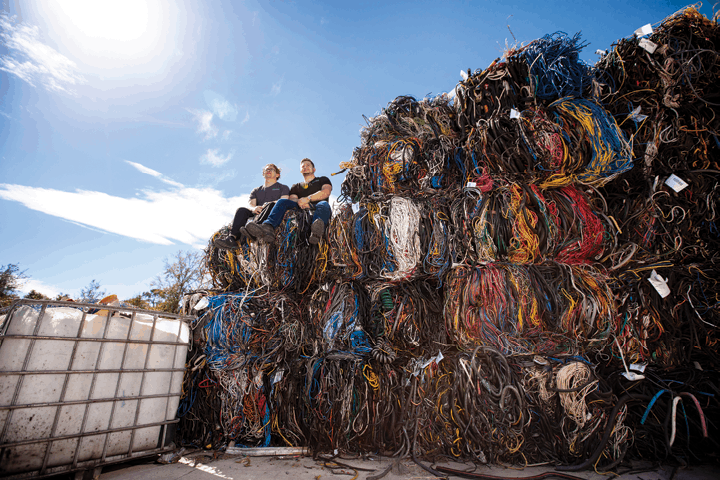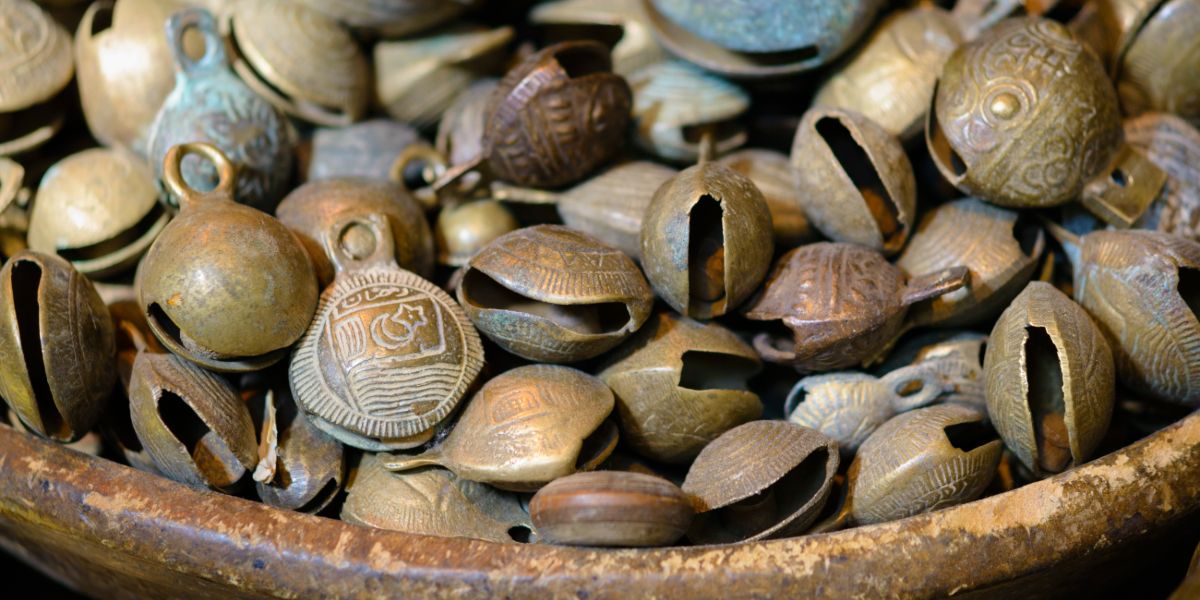
What’s ferrous metal recycling? Let’s break that down for you.
There are two different types of metals that can be recycled: ferrous and non-ferrous. Ferrous metals are the most recycled metals. You could possibly be throwing away ferrous metal that could be recycled and not even know it!
Simply put, ferrous metals are metals that contain iron which makes them magnetic. Easy right?
However, before you get your magnet and start trying to figure out what is ferrous and what is not, we’re going to save you some time by telling you what exactly ferrous metals are, the most common types, and why it’s important that we recycle them.
What is Ferrous Metal?

Like we stated above, ferrous metals are all magnetic. When a company states that they offer ferrous metal recycling they mean iron and steel recycling.
Steel is the world’s most recycled material. According to the Institute of Scrap Recycling Industries (ISRI), in 2017 alone, the United States’ scrap recycling industry processed 66 million metric tons of ferrous scrap valued at $15.9 billion; now that’s a lot of metal.
Fun fact: on average, the United States processes enough ferrous scrap daily, by weight, to build 25 Eiffel Towers every single day of the year.
Most Common Items Made of Ferrous Metal

Ferrous metals are all around us, you may just not realize it! Common household appliances like refrigerators, ovens, and dishwashers are typically made from ferrous metals.
Additionally, if you have any cast iron skillets lying around, those are also made of a ferrous metal that can be recycled.
If you have a wrought iron fence around your house or yard, guess what? That’s made from iron which is a ferrous metal.
Your car is yet another item in which ferrous metal can be found. According to the ISRI, the United States recycled the equivalent of nearly 12 million cars in 2014 and according to Statistica, only 7.7 million cars were sold in 2014. That just goes to show you just how much ferrous metals recycling we can do.
If you park your car in a parking garage it is likely that the garage is made of concrete and steel; steel is ferrous. Parking garages are just one example of the steel structures that typically populate cities.
If trains are more your speed, then you are literally surrounded by ferrous metal, including the railroad tracks beneath you.
Enough of city life; if country living is more your style then you can bet that most of your farm equipment is made of ferrous metal, all of which can be recycled when it’s time to upgrade.
As you can see, no matter where you live ferrous metal is all around us. The challenge is raising awareness since ferrous metal easily rusts or corrodes making it obsolete.
Why Ferrous Metal Recycling is Important

Steel is among the most recycled materials in the world. Nearly 40% of the world’s steel production is made from scrap. Recycling steel also requires 75% less energy than producing it from raw materials.
Again, this saves manufactures loads of time and money and those cost savings are then passed down to consumers.
Steel is 100% recyclable and, depending on its life-cycle, can be used again and again. In 2017 alone, 600 million metric tons of ferrous metals were consumed worldwide, but imagine the impact it would have if most of that was recycled?
Recycling these ferrous metals helps reduce the potential environmental risks caused by discarding these items in landfills around your town. By using recycled ferrous scrap rather than virgin materials CO2 emissions are reduced by 58%.
If you recycle just one car it can save more than 2,500 pounds of raw iron, 1,400 pounds of coal, and 120 pounds of limestone. And considering that in 2014 the U.S. recycled the equivalent of 12 million cars, one can only imagine the positive environmental impact that had.
Ferrous Metal Recycling
Do you have some ferrous metals in need of recycling? Take it to an experienced scrap metal recycler like GLE Scrap Metal.
GLE Scrap Metal buys, processes, and sells all grades of ferrous scrap metal, which creates a major benefit to our environment.
When scrap metal in the U.S. is recycled, it is worth billions of dollars. Scrap saves manufacturers time and money because they don’t need to spend time and resources getting new materials.
We offer expert ferrous recycling services to private businesses, demolition companies, and the general public. Materials are safely stored in our 4-10 cubic yard containers while our trucks, cranes, excavators, car crushers, loggers and balers make it easy to process just about any material.
Your ferrous scrap metal can provide you with additional revenue while providing all of us with a cleaner and healthier environment.
To find out more contact us or call us at 855-727-2788.



